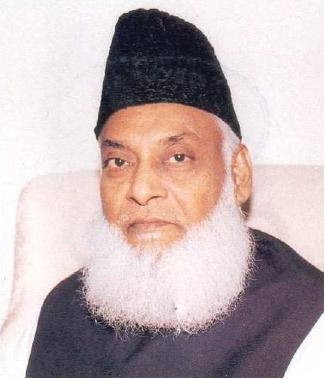By TCN News,
New Delhi: The Students Islamic Organization of India (SIO) has expressed deep sorrow over the death of renowned Islamic scholar Dr Israr Ahmad (1932-2010). Prolific writer and orator Dr. Ahmed breathed his last in Lahore, Pakistan early on Wednesday. He died of a massive cardiac arrest.
“The demise of such an outstanding scholar is a great loss particularly for the Islamic activism of our times. Dr Israr Ahmed shall be long remembered for his life long effort to invite young generation towards Islam through his brilliant interpretations of the Holy Qur’an,” said Shahnawaz Ali Raihan, National Secretary, SIO of India.
His Dars-e-Qur’an guided many lives towards true spirit of Islam as in his young days he was guided and trained by great Islamic scholar Maulana Syed Abul Ala Maududi. His services as scholar as well as preacher of Islam would always be remembered. May Allah Almighty shower his blessings on the departed soul and give courage and fortitude to his family members and associates of his organization Tanzim-e-Islami, to bear this irreparable loss with equanimity, Raihan said.

Dr. Israr was the head and founder of Tanzeem-e-Islami. He had a huge following in Pakistan, India and Gulf countries, especially in Saudi Arabia. A medical doctor by profession, Dr. Israr was one of the founding members of the Jamaat-e-Islami. He was popular for his lectures and TV debates over current Islamic issues.
Dr. Israr Ahmad was born on April 26, 1932 in Hisar (a district of East Punjab, now a part of Haryana) in India. He graduated from King Edward Medical College (Lahore) in 1954 and later received his Master’s degree in Islamic Studies from the University of Karachi in 1965. He came under the influence of Abul Ala Maududi as a young student, worked briefly for Muslim Student’s Federation in the Independence Movement and, following the creation of Pakistan in 1947, formed the Islami Jamiat-e-Talaba and then formed the Jamaat-e-Islami. Dr. Israr Ahmad resigned from the Jama`at in April 1957 because of its involvement in the electoral politics, which he believed was irreconcilable with the revolutionary methodology adopted by the Jama’at in the pre-1947 period.

